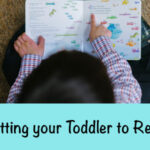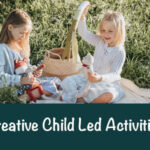Best Ways to Raise a Resilient Toddler
Raising kids during a pandemic isn’t easy, but it is a good reminder we want our children to make it in the world no matter what. When we think of resilient kids, we are hoping they will be able to: problem solve and manage their emotions calmly. While toddlers may seem like irrational tiny humans, there are approaches your family can adopt to lay the foundation for resiliency years to come. Today we at Kinder Buddies Oakville Daycare discuss the best tips for raising resilient toddlers.
What does Resiliency look like for Toddlers?
When we think of problem-solving and emotional stability the last thing that comes to mind is a toddler. Most toddlers are still learning to identify their emotions let alone make connections on where they come from. Toddlers won’t become rational adults overnight but giving them the tools and mindset they need to be more independent and resilient is straight forward.
Mastering Emotions
Mirror Emotional Resilience
The first step to teaching emotional resilience is to practice what you preach! Avoid big reactions to little mistakes. Is it the end of the world their cup of juice spilled after you told them to be careful? Not in the grand scheme of things. We aren’t saying don’t act frustrated or disappointment, but is it time to start yelling? No.
Help them Identify Emotions Easily
Giving kids names for their feelings is a great start. Emotions are so big to children as they can’t identify them, they don’t know why they have that emotion, and they don’t know how to handle the emotion.
When your child is acting out ask them to describe how they are feeling. Help them find out what caused the emotion and name the emotion. If you can play detective you can guess with your child until they find the right description:
Example: Hey you seem sad and disappointed. I know you were happy having fun with your friends but it’s time to go home. I know that’s upsetting but you can see them another day
Even though your child may not get their way and it doesn’t “solve” their issue, it gives emotional context.
No Bad Emotions, Only Bad Reactions
Your child needs to know that it’s ok to be sad or angry. Even what an adult may see as an overreaction, a meltdown because food is touching, the feelings they are feeling are indeed real to them.
Unfortunately for toddlers, they don’t know what to DO with the energy of these emotions. This can often lead to tantrums, hitting, and other destructive behaviour we don’t like. As adults we need kids to know the emotions they have are legitimate, but are not excuses to act out. When your child is acting out give them other options to redirect the energy:
- I know you’re angry, but hitting hurts. Would you like me to sit with you while you calm down or would you like some alone time?
- It’s frustrating that Sam won’t share their toy, but it is their turn and you cannot take it from them. Would you like to play with your bear or your train now?
- I see you’re very sad because your stuffed animal is missing. But screaming at me won’t help. Do you want me to help you look or would you like to look by yourself?
Problem Solving for Toddlers
Let Them Fail
The biggest tip for creating resilient kids is allowing them to fail. It’s said over and over but in the future, your child will make mistakes. The key to resiliency is getting back up and trying again. Obviously always make sure your child is safe, but for centuries toddlers have learned about the world by interacting with it.
Avoid interfering or directing play with your babies and toddler. Allow them to figure out the world with their own two hands. It’s fun to play with your child, but you give them adult structured play without meaning to. Your child may learn to stack blocks faster with guidance, but if given the chance, they can learn to do it themselves.
Praise the Behaviour not the Outcome
To lead on this we often have reward systems where we give praise for outcomes. Research has come out that toddlers crave praise, and who doesn’t? The issue comes when kids become scared to fail as they won’t be praised. They take fewer risks unless they are sure they will succeed. But failing or being bad at something is the first step to being good at something!
So what to do instead? When your child succeeds, recognize the behaviour that led to success. Example: I love your drawing! You used so many colours and concentrated really hard and it shows!
Did your child fail? Avoid being harsh when you know they tried. Example: I’m sorry you couldn’t tie your shoes before we left the house. You were trying your best. Let’s practice some more when we get home today!
Have Punishments Match the Bad Behaviour
Toddlers learn best from cause and effect. They stack the blocks too high? They fall over. They flip a switch? The light goes on. Because of this the most effective punishments relate directly to their bad behaviour.
- Your child gets their favourite Teddy dirty? They have to sleep with another stuffy tonight since Teddy is in the wash.
- They have spilled their juice? No more juice, no refills.
- Being rude to other kids at the park? Head home, no one wants to play with someone who is rude.
When thinking of punishments imagine your child as a tiny adult. What are the consequences in the real world? You don’t even need to tell them they are being “punished”, all they need to know is this action has this reaction.
Kinder Buddies Oakville Child Care is a Quality First Daycare and Infant Care facility in Oakville, Ontario. We take care of children from the age of 6 weeks to 5 1/2 providing nutritious meals and fun activities all day long.

 Previous Post
Previous Post Next Post
Next Post